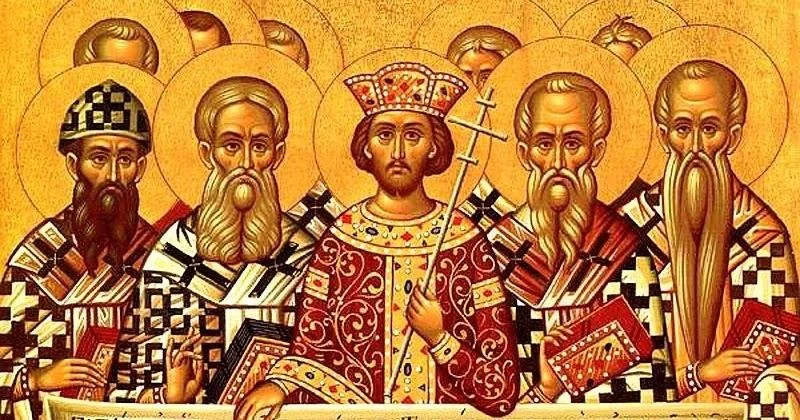Women In
Church History
While there is evidence of women serving faithfully in the early Church and throughout Church history, there is no evidence of female elders/pastors until roughly 1853 when Antoinette Brown Blackwell was ordained. She later left the Christian faith to become a Unitarian.
Attention to Church History
The reality is that there has been near-universal agreement on the issue of male-only headship in the Church until the 19th century. Antoinette Brown Blackwell is thought to be the first “female pastor” to be ordained in a recognized denomination. Even then, it was only liberal denominations that implemented any form of female authority. While egalitarians will appeal to “a diversity of interpretations” on the passages at hand, the idea that theologians have interpreted it differently gives the wrong idea. Orthodox scholars have for millennia agreed that overseers in the church must be elder-qualified males. Egalitarians will sometimes cite the use of Πρεσβύτιδας “aged woman” in Titus 2:3 to make the case for female elders. However, the term refers to these older women teaching younger women, not to women serving as pastors.
Additionally, the masculine use of the term in the previous verse is used to speak to older men teaching younger men. There is nothing in the context to indicate women pastors are being affirmed. In fact, just the opposite is presented. Furthermore, throughout church history, the term is used to affirm against the concept of female elders (Canon 11 of Laodicea) or to refer to something other than female pastors (Dionysius of Alexandria). The closest thing the elders have to female elders in church history is a variant reading of an apocryphal book. “The Martyrdom of Matthew” is not only apocryphal but does not include a mention of “eldress” in its best manuscripts. It is only in a variant reading that there is a mention of a king becoming an elder with his wife being called “eldress.” This 4th-5th Century variant reading of an apocryphal book cannot be considered reliable by any means.
Irenaeus, Tertullian, Hippolytus, The Didascalia, Firmilian, The Council of Nice, The Council of Laodecia, Epiphanius of Salamis, John Chrysostom, The Apostolic Constitutions, Agustine, and many others deny female eldership/ordination. This is not to say that church history is the authority on the issue. We have already established what the Word of God says on the issue. This does answer the “diverse interpretations” issue. The Church has agreed for millennia on this issue.
Any time churches change doctrine in ways that match cultural views, we should be alarmed.
At times, egalitarians will point to women serving in key roles in Church history. They will note that Gregory of Nazianzus wrote a letter to Gregory of Nyssa about Theosebia, affirming the “free speech” of women and the “priestliness” of Theosebia. However, the priesthood of all believers was affirmed then as now (1 Peter 2:5). Even the most patriarchal churches will readily affirm the priestly role of all believers. This quote from Gregory provides no support for female elders or pastors. None of the females serving in Church history were in positions of eldership, nor did they engage in the authoritative role of teaching men.
Every Believer Is a Priest
Not Every Believer is a Pastor
The Priesthood of All Believers
However, this should not discourage the sister in Christ who ants to serve. Women are commanded to offer spiritual sacrifices (1 Peter 2:5) just as men are commanded. While this is not an elder role, it is no less important. The great tragedy of egalitarianism is that it admonishes women to do the work of men while neglecting both the critical importance of the role of women and the faithful work to which all believers are called.
All believers are commanded to exercise spiritual gifts (1 Corinthians 12, Romans 12), to bear one another’s burdens, to confess sin and forgive one another, to pray for one another, etc. These essential functions of the church are often ignored, yet they are critical. Further, there is no prohibition against them.
Further, women are called uniquely to minister in ways that men cannot. Titus 2:3 commands older women to teach the younger. Women are affirmed as the “glory of man” and are held in high esteem as they nurture and oversee the home and disciple other women (something men should not be doing). The unique and focused discipleship of children in the home requires the gifting of women in what may be the most influential role to train up the next generation.



